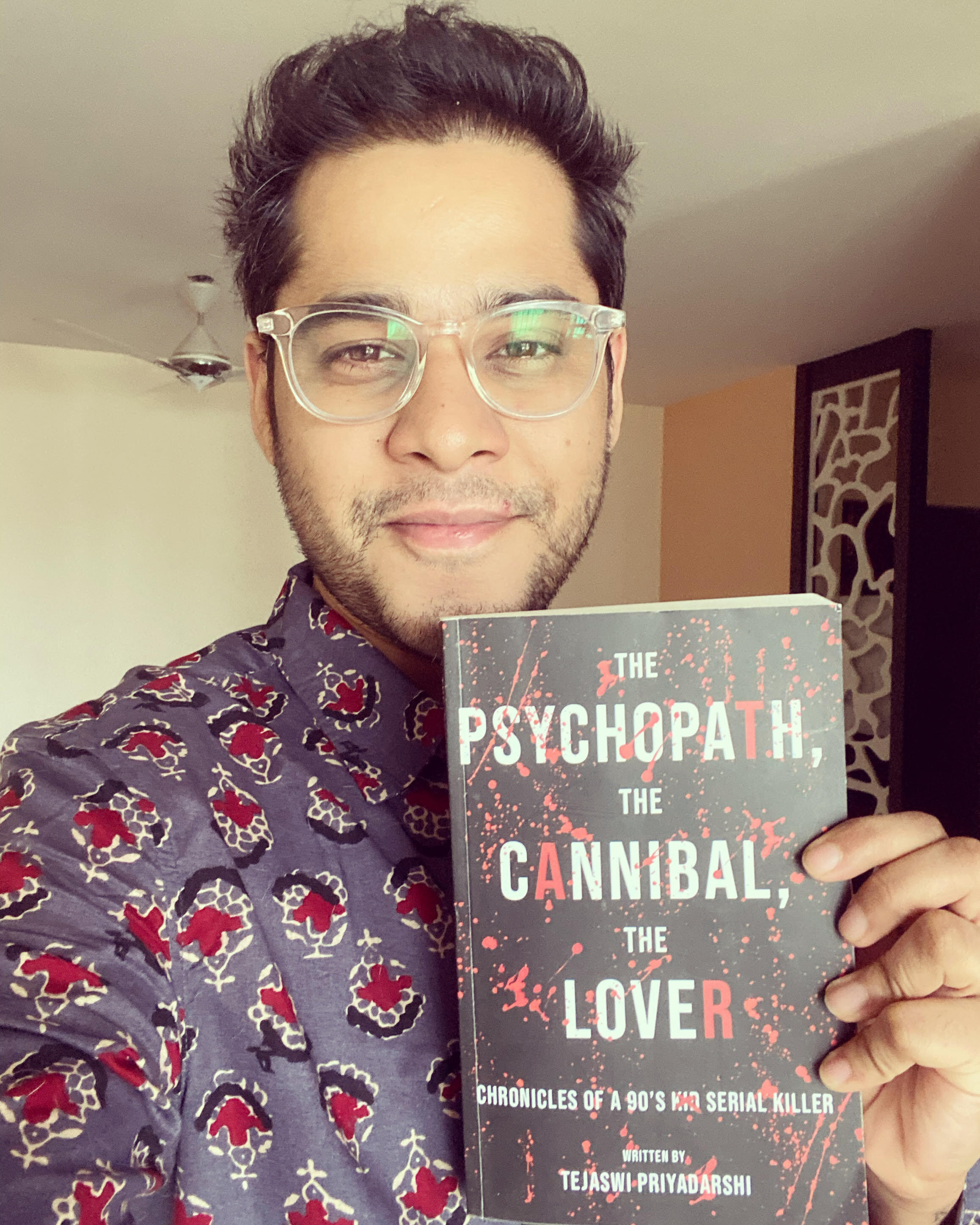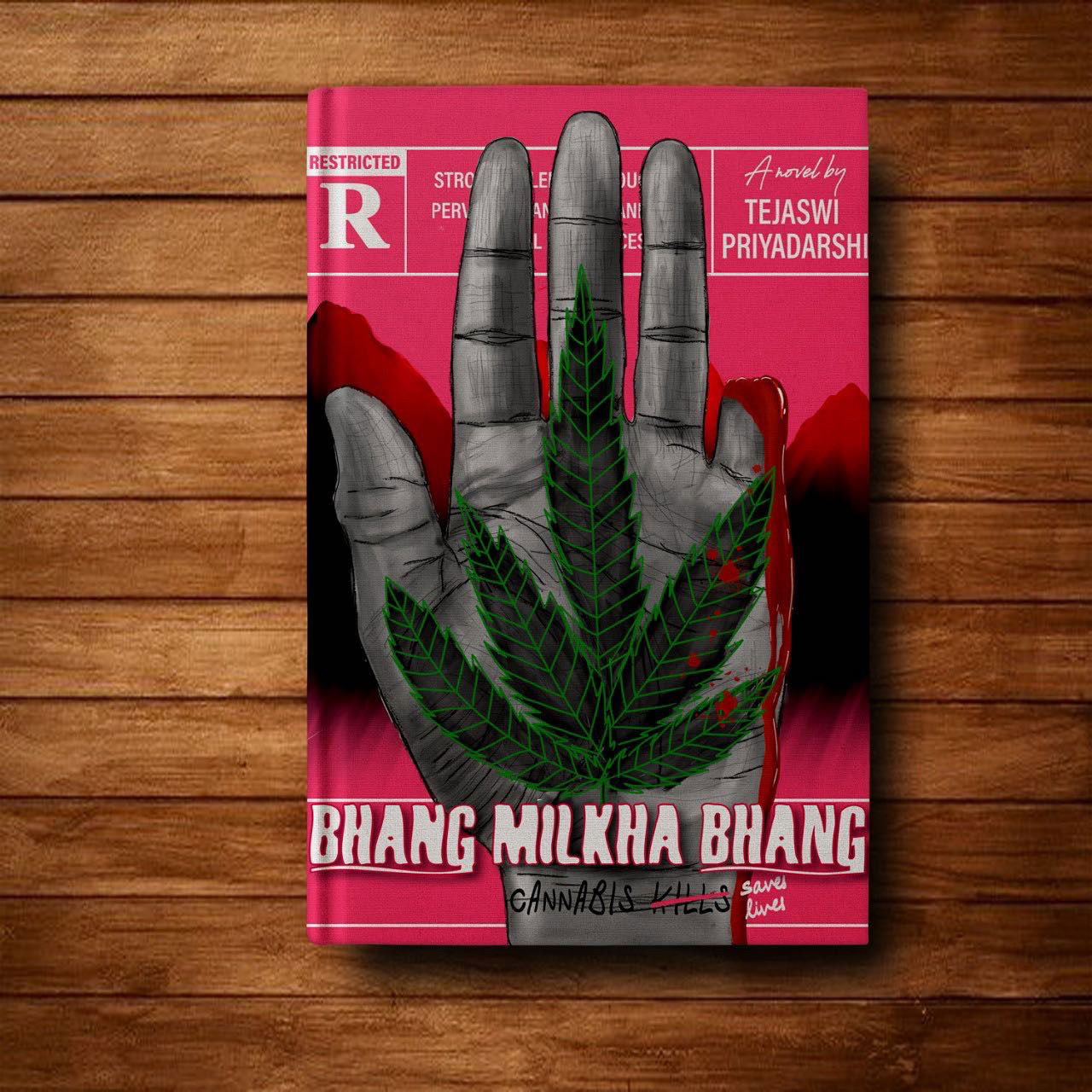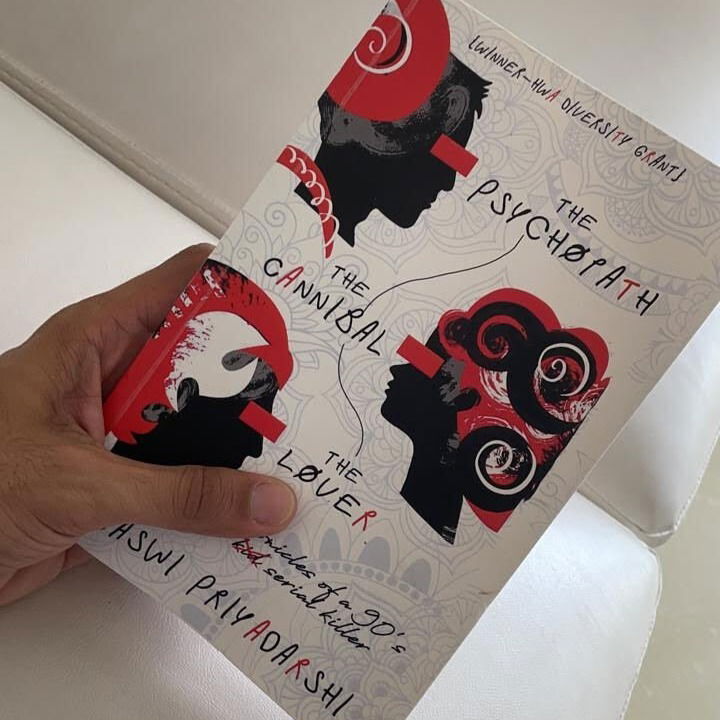Delving into the Dark: An Interview with Splatter-Noir Author Tejaswi Priyadarshi
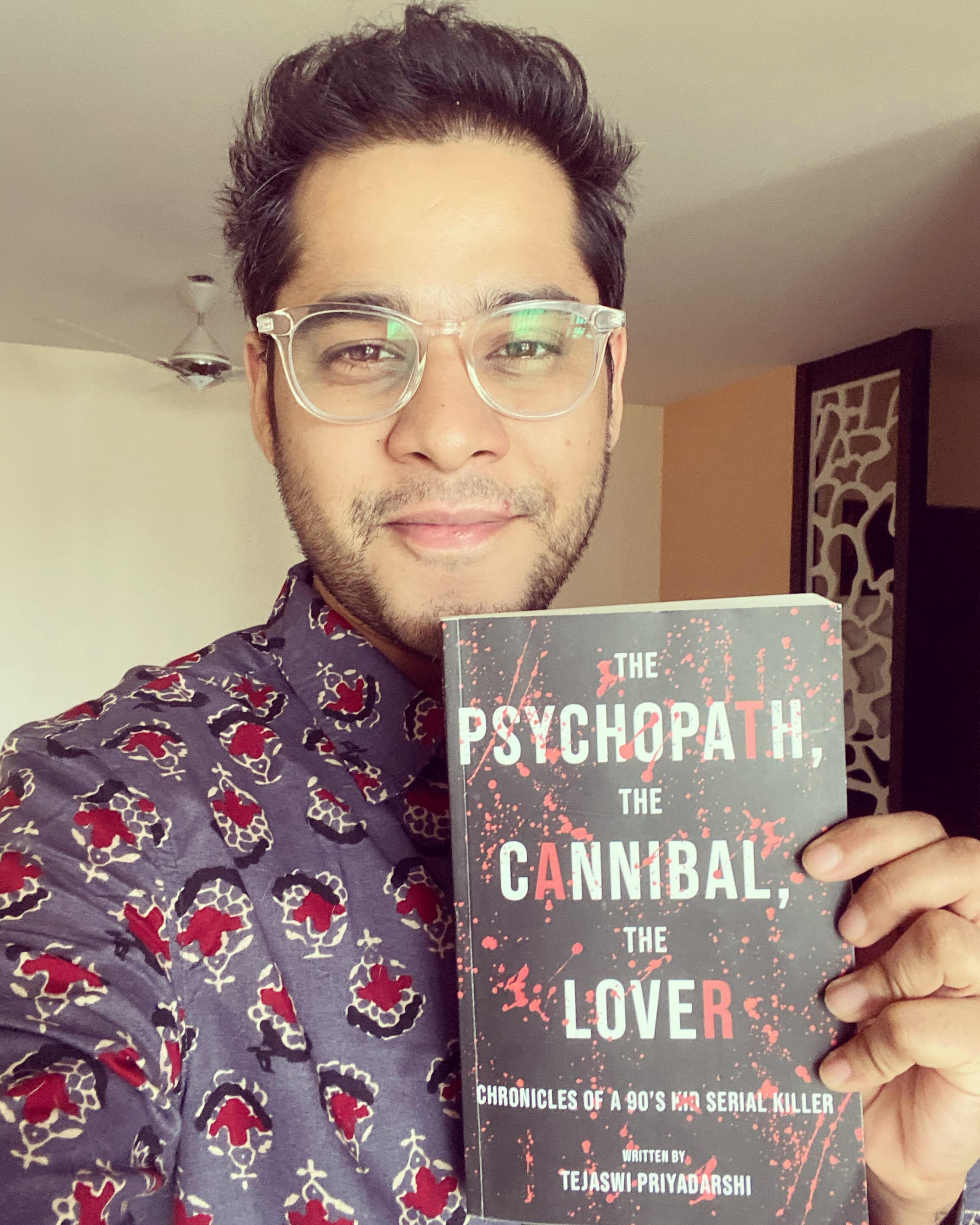
Meet Tejaswi Priyadarshi, a rising star in the realm of splatter-noir fiction and a recipient of the prestigious HWA Grant. His books, "The Psychopath, The Cannibal, The Lover" and "Bhang Milkha Bhang," have played a pivotal role in pushing the boundaries of the splatterpunk genre within the vibrant landscape of Indian literature.
Tejaswi's literary work is a unique fusion, skillfully intertwining splatterpunk with local genres, geographic nuances, and distinct flavours, creating a reading experience like no other. With a background in engineering and business, Tejaswi brings a diverse range of perspectives to his writing.
Beyond his craft as an author, he also boasts a specialization in digital marketing. Currently, Tejaswi is embarking on two intriguing literary projects: a splatterpunk short story collection and a bone-chilling psychological horror novel.
Join us as we explore the mind behind the macabre, and get to know Tejaswi Priyadarshi in this exclusive interview.
1. Tell us about yourself, how you developed your passion for writing, and what inspired you to become an author.
A. I dream in horror. Coming from Patna, I have sadly spent most of my life outside the city, but have rather explored the darkest crevices and passages across multiple loci in India and Africa. However, what Patna gave me was what I was exposed to at a very young age - a lot of horror and noir. Writing came inherently because I rhymed stuff well, but I started exploring it seriously only as a young adult, doing a lot of horror movie reviews, journaling for pro-environment orgs, etc. Once I realized that my horror research and impeccably dark imagination could work well together, I started writing long-form fiction.
2. Tell us about your first published book. What was the journey like?
A. I started writing The Psychopath, The Cannibal, and the Lover in 2015. It didn’t have a name then, but just a chapter, the very first one. Dropped it for a couple of years and picked it up again for co-writing with a dear friend. Dropped it again. Finally, in 2020 April, I finally resumed writing and finished the manuscript. Pitched a very raw manuscript to every publisher, and got rejected before editing and pitching it again. I didn’t know the importance of editing, having an agent, etc. back then. Toiled through the entire book lifecycle including promotions myself, and got the book out on Amazon.
The journey was tough, as are most worthwhile ones!
3. Please tell us what you enjoy most about writing. What is your favorite part of being a writer?
A. I enjoy finishing my writing projects; seeing the end is orgasmic! My favorite part about being an author is that I can live dual lives - I don’t need another escape from the mundane.
4. What have you found to be most challenging about writing?
A. I think it is the post-writing shenanigans that trouble me the most. Also, selling my work is a whole lot of work because of its transgressive themes and nature.
5. What do you like to do when you’re not writing?
A. I write for only 2 months in a year. At my regular day job, I lead marketing for a new-age gaming product. I also consume a lot of cinema, foster & rescue cats, work out, and play cricket every week.
6. What is your real-life work schedule like when writing? How many hours a day do you write?
A. During the 2 months that I mentioned, I write and rewrite for 2-3 hours each day, juggling my schedule along with my full-time job. I typically do late nights, but am shifting to early mornings this year.
7. Where do you get your ideas for your books?
A. I formulate ideas, gathering and seeking inspiration from things, people, and places around me. My work is focused on layering splatterpunk with local genres and geographic indications and flavors.
8. What makes a great story?
A. For me, a great story is a mix of A-class characters, logic, and entertainment.
9. What does literary success look like to you?
A. A lot of readership. I think Chetan Bhagat is what literary success looks like in India!
10. What kind of research do you do, and how long do you spend researching before beginning a book?
A. I do a lot of primary and secondary research, keeping a mix of in-person interviews, books, and internet research for learning about the subjects that I write on. I intend to include travel here. I typically do my research in parallel as I write.
11. Do you read your book reviews? How do you deal with bad or good ones?
A. I read all my reviews. Reviews are synonyms for validation and any new author who says they don’t read their reviews is lying. For me, good reviews are celebrated, and bad ones are treated as ways to learn, except for when they are targeted. I have seen a few ugly, targeted reviews, and have learned how to ignore them.
12. Do you try more to be original or to deliver to readers what they want?
A. I try to be original and find readers who want to read my content. I think once I have a big enough readership, this question would have more relevance for me.
13. How did publishing your first book change your process of writing?
A. After my first book was published, I started getting into a lot of horror communities and also met many fellow authors. Learning from like-minded people and mentors helped shape my efforts better, and helped me streamline my writing in a more positive direction.
14. What might your next book be about? Please provide information about the books you have published as well.
A. I have two books in the pipeline. While one is a psychological splatter horror, the other is a very atypical collection of short stories. Both of them are currently in the early stages of publishing.
Till date, I have published two books. The Psychopath, The Cannibal, the Lover is a slasher thriller about the life story of a yesteryear serial killer terrorizing Bangalore. Bhang Milkha Bhang is a splatter noir about a group of people who are ready to go to any extent to get hold of an obscure subspecies of cannabis.
15. Share some advice for aspiring authors. What advice would you give to your younger self?
A. My advice to both aspiring authors and my younger self would be to keep the proceedings simple. Good things take time 🙂
I want to extend my sincere appreciation for the time you've graciously dedicated to our conversation. Your insights into your journey as an author and your forthcoming literary works have been truly exceptional. As you embark on your future literary endeavors, please accept my warmest wishes.
Once more, I wish to express my profound gratitude for your invaluable contributions and for generously sharing your time in this enlightening dialogue. Thank you.
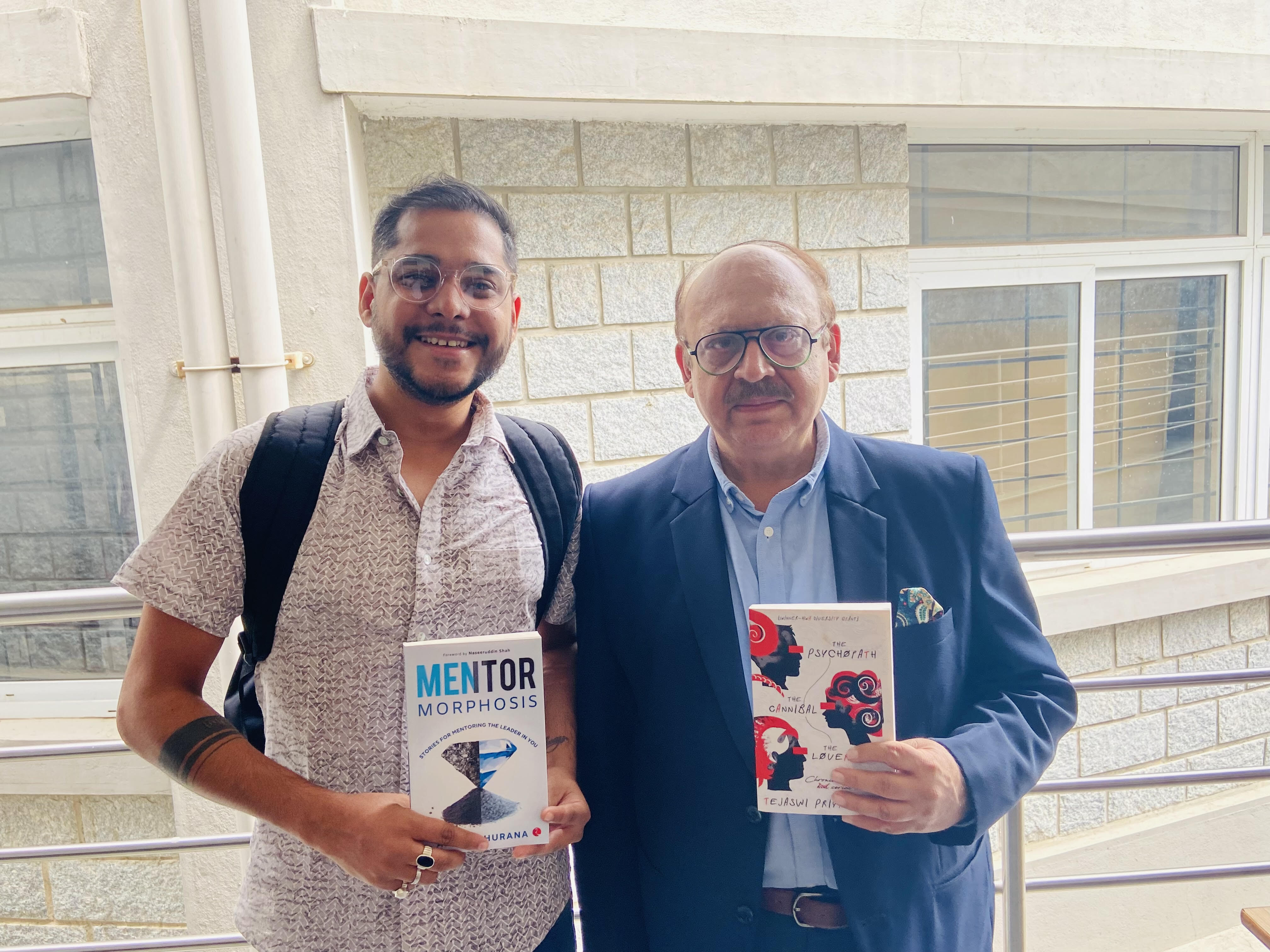
Connect With Author Tejaswi Priyadarshi:
